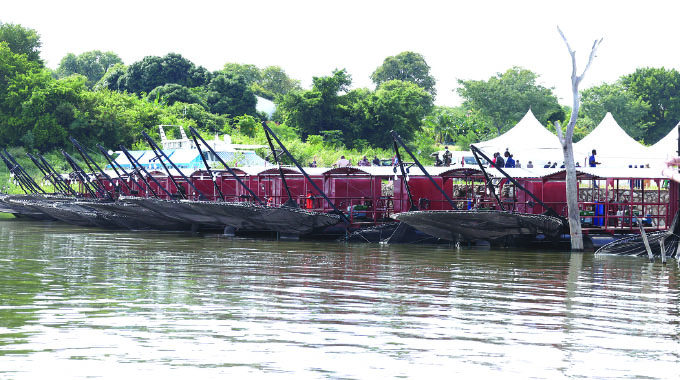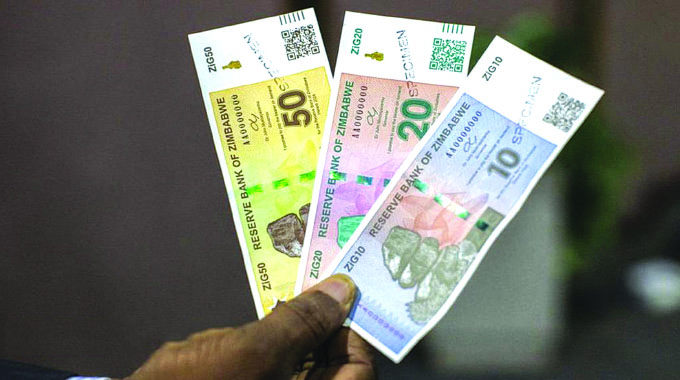Alcoholism and the Zim Diaspora


“MAKE MINE ON THE ROCKS” . . . There was a period soon after independence when one would know who had been to the Diaspora and who had not by the type of alcohol they drank
Nick Mangwana View From the Diaspora
Whatever the cause of this alcoholism scourge a lot of social capital is being unnecessarily lost. There is really no need to applaud someone because they are legless and paralytic from too much alcohol.
A decade or so ago when the current Special Health Advisor in the Office of the President and Cabinet, Dr Timothy Stamps, was the Minister of Health, he had a nickname.
They called him “Dr Killjoy”. This was because he fervently campaigned for people to make use of condoms to prevent the spread of HIV infections.
A lot of young people going by today’s attitudes about safety would be surprised that someone would earn such a name said in pejorative terms for such a noble campaign.
But that is the kind of thing that happens when your commentary or views intrude onto areas people derive pleasure.
By definition a Killjoy is a person who deliberately spoils the enjoyment of others.
So imagine what name would be given to the person that says Zimbabweans are enjoying a tipple or two, too many.
But then considering how much havoc alcohol is causing in the Zimbabwean community in the Diaspora a warning against being a slave to pleasure is in due season.
It is difficult to ring a knell and at the same time avoid sounding like an alarmist. But some things are better said.
There is an insidious plague among Zimbabweans in the Diaspora.
And that is alcoholism and all the attendant problems. Initially, the problem was just drinking a bit more than usual and engaging in reckless behaviour such as drink driving.
Now it has actually reached alarming pathological proportions when all around one begins to see formerly responsible and functional professionals reduced to gorgon-looking skeletal apparitions.
Since an allusion to drink driving has been made maybe that is a good starting point. You see reader, the problem is probably with the drinking culture of where we come from.
Most festive seasons and other holidays hundreds are killed or maimed on Zimbabwean roads as a result of drunk drivers.
Someone is quite at peace with driving while a bottle is held between their legs and they are carrying their whole family with them in the car.
They arrive at the next bottle store they take a comfort break (recess) and then replenish their supplies. They carry on drinking while their judgment is getting more and more clouded.
They pass so many roadblocks and police checkpoints.
The police will check for everything else that raises revenue but hardly for the sobriety of the driver possibly because it does not bring immediate cash and also the amount of paperwork that will be required to process a drunk driver as well as the appearance in court as a chief witness is not very attractive.
Who knows? Even in cases where the person that is talking to them is clearly slurred and their breath has an alcohol fume all they ask about is a missing reflector on the vehicle back bumper or such mundane issues and ignore the key issue of a drunk driver.
Really? If this driver was risking himself only then there would be no problem. But how about his family? How about other families also who use the roads and have decided to delay their own drinking by an hour or two until they get to their destination?
But hey that is the culture we decided to couch. Some even drink at a police canteen or whatever they are called these days. He buys a few for the Officer Commanding Traffic while he imbibes a few more himself. From there the two drink mates get in the car park and get into their separate vehicles pretty stupefied by their drink.
We grew up with stories of a cousin driving through a narrow bridge the previous night while drunk but would not dare cross such a narrow bridge the following day when he was sober.
Yet still we were always told that there is so and so, they might not be able to walk to the car but once you help him to it and settle them in the driver’s seat they will get home and sometimes just sleep in the car because they will be too drunk to leave the cabin of the car. What a “devil-may-care” attitude towards one’s life and that of others. Is the drink that important? There is a need to accept that drink incapacitates everyone from making sound judgment. If you don’t want to be tried by a drunken judge, don’t drink on the road.
Now take this person who grew up experiencing such a cavalier attitude towards responsible drinking and throw them in the Diaspora in a country like the UK, Australia, etc.
On the day when there is Traffic Court just go and look at the Court Roll and see the names of the accused and see how many have Zimbabwean- sounding names. It is quite embarrassing. Whenever there is a group of Zimbabwean men in the UK it is funny to ask how many have been banned for drink driving in the past. The percentage is usually shocking.
One wonders why that is the case. Can this be only explained by our imperious attitude towards alcohol because of our culture? Talking of our culture one person argued that in our rural communities if you call for nhimbe/humwe (reciprocal community-based work) and you would not provide alcohol then nobody would work. Those familiar with this togetherness would recall the three main drinking sessions.
The first which is called “chikurura mabhachi”, which was meant to get the people warmed up people for hard work.They would then remove excess clothing because things would get heated up by the alcohol-influenced productive exertions. The second was “gombora” and the last session was called “chisaina”. This will be the terminal session that will put an end to the day and the drinking will continue until late.
This means community work and socialisation was always around alcohol. This is not a critique of this very helpful system but it helps illustrate how much alcohol was the centrepiece of community cohesion. But one thing everyone has to remember is that it took seven days to brew and the alcohol served was such a big deal with an announcement telling people where the alcohol could be found on the day (hwadirwa kwanhingi).
And those days were far and part. The community was comfortable with the happy drunks and did not approve those who were a menace (vanamarambadoro). Unfortunately, the same drinking culture in a scaled-up proportion was taken to the Diaspora where in most places alcohol is cheaper and readily accessible.
The Diaspora can be quite lonely. The same social structure found at home is not there and even those who have lots of siblings and family in one country cannot afford to visit each other as regularly as, say, two siblings in Harare or Bulawayo. There are intricate child minding arrangements which sometimes have to be timed and synchronised with phenomenal precision as well as the work routines themselves. So those struggling with acculturation might not get the level of support they would need from friends and family.
So with an abundance of alcohol to contend with and in some cases a generous social security system the harmful drinking has implanted itself in the community.
It is very difficult for families of the afflicted to accept this addiction as a disease. But when one comes across an individual so ravaged by it and trying their best to come out of it one realises that this beyond the fortitude of willpower. Surely, whatever the reason of this, the drinking culture among Zimbabweans has to change both in Zimbabwe and in the Diaspora but the menace in the Diaspora has reached unsustainable proportions. They point to people struggling to adjust to a new culture and the feeling of isolation and alienation.
This is the processes called acculturation which can simply be defined as the merging of cultures due to prolonged close contact.
Some think it has something to do with the weather or change of diet which alters one’s capacity to metabolise alcohol, some say it is the type of drink that some are now choosing to drink compared to the less potent they are accustomed to at home. People have a right to choose a drink of their choice but consider this:
There was a period soon after independence when one would know who was a “been-to” and who had not by the type of alcohol they drank.
The “been-to” had a taste for whiskey while everyone else was into lager and Chibuku. There were also the elite that had emerged from Mozambique. They also had strangely suddenly developed this taste for whiskey and bourbon.
One wonders where this had come from. Were they wannabes or really they had acquired this taste for this drink? Maybe blame it on colonialism for elitism.
Whatever the cause of this alcoholism scourge a lot of social capital is being unnecessarily lost. There is really no need to applaud someone because they are legless and paralytic from too much alcohol.
And everyone at home should say no from being driven by someone who has taken a few. It is the community mind-sets that influence and modify societal behaviour.







Comments